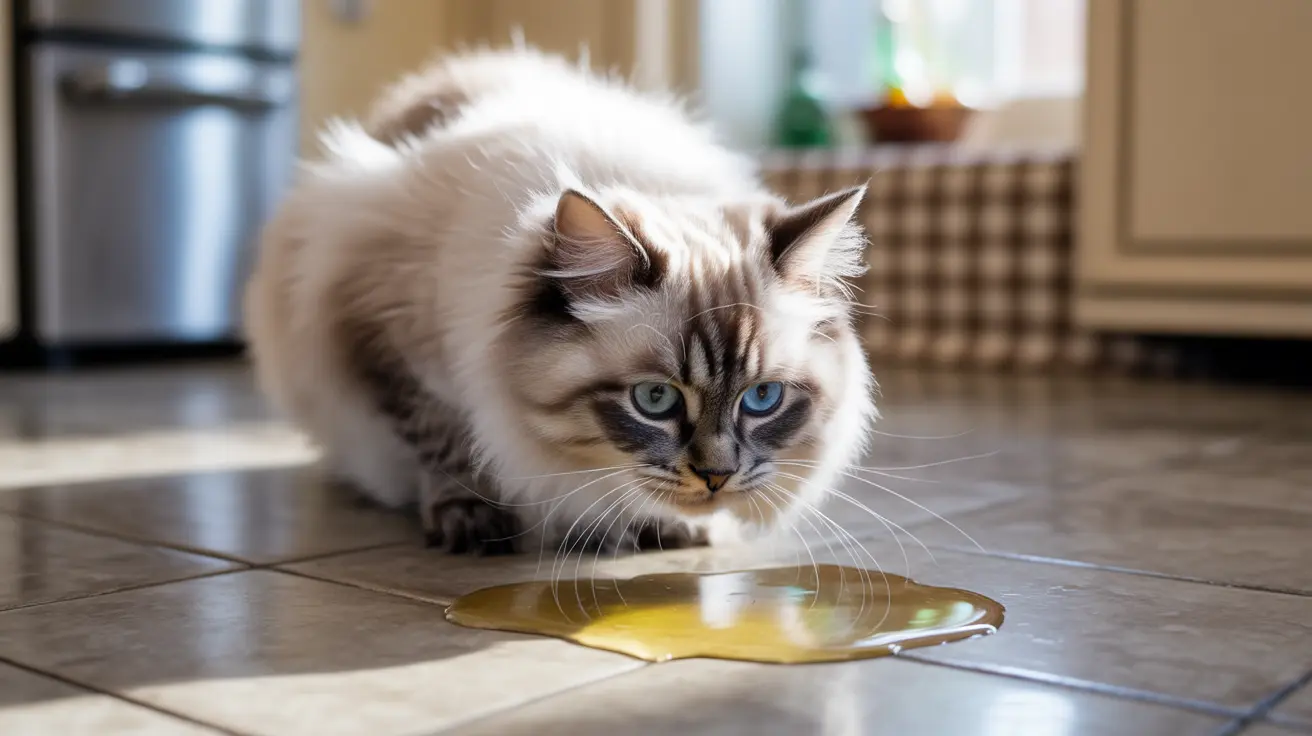Many cat owners wonder about the safety of vegetable oil for their feline friends, especially when their curious cats show interest in kitchen spills or cooking ingredients. While vegetable oil isn't strictly toxic to cats, understanding its effects and potential risks is crucial for responsible pet care.
In this comprehensive guide, we'll explore the relationship between cats and vegetable oil, examining both the safety concerns and health implications to help you make informed decisions about your pet's exposure to these common household ingredients.
Understanding Cats and Vegetable Oil
Cats are obligate carnivores, meaning their bodies are designed to process and utilize nutrients primarily from animal sources. Their digestive systems aren't optimized for processing plant-based oils, which can lead to various health considerations when consumed.
While small amounts of vegetable oil are often found in commercial cat foods as part of their formulation, direct consumption of cooking oils presents different challenges and potential risks.
Safety Considerations and Immediate Effects
When it comes to immediate safety, vegetable oil isn't typically dangerous in small amounts. However, several factors can influence how your cat might react to consuming it:
- Quantity consumed
- Type of vegetable oil
- Your cat's individual health status
- Frequency of exposure
Most cats who consume small amounts of vegetable oil might experience mild digestive upset, but severe reactions are uncommon in healthy cats.
Potential Health Risks
While not immediately toxic, regular or excessive consumption of vegetable oil can lead to several health issues:
- Gastrointestinal upset and diarrhea
- Weight gain due to high caloric content
- Nutritional imbalances
- Potential for pancreatitis in sensitive cats
- Interference with absorption of other nutrients
When to Contact Your Veterinarian
Seek veterinary attention if your cat shows these symptoms after consuming vegetable oil:
- Persistent vomiting or diarrhea
- Lethargy or unusual behavior
- Loss of appetite
- Signs of abdominal pain
- Difficulty breathing (if oil is aspirated)
Safe Alternatives and Best Practices
Instead of using vegetable oil, consider these safer alternatives for common concerns:
- Commercial hairball remedies for hairball management
- Veterinary-approved supplements for coat health
- Prescription medications for constipation
- Species-appropriate dietary fats from animal sources
Frequently Asked Questions
Is vegetable oil bad for cats if consumed in small amounts?
Small amounts of vegetable oil are generally not harmful to cats, but it's not recommended as a regular part of their diet. Occasional accidental consumption of tiny amounts typically results in minimal to no adverse effects.
Can I use vegetable oil as a supplement for my cat's diet?
Veterinarians generally do not recommend using vegetable oil as a dietary supplement for cats. Their nutritional needs are better met through properly formulated cat food and vet-approved supplements if necessary.
What are the health risks if my cat ingests too much vegetable oil?
Excessive vegetable oil consumption can lead to gastrointestinal upset, diarrhea, vomiting, weight gain, and potential long-term nutritional imbalances. In some cases, it may also contribute to pancreatitis in susceptible cats.
How should I handle an accidental ingestion of vegetable oil by my cat?
Monitor your cat for signs of digestive upset. If they consumed only a small amount, provide fresh water and watch for unusual symptoms. For large amounts or if concerning symptoms develop, contact your veterinarian.
Are there any benefits to giving vegetable oil to my cat, and what alternatives are recommended?
There are very few proven benefits to giving cats vegetable oil. For specific concerns like hairballs or coat health, consult your veterinarian for appropriate commercial products or supplements specifically designed for cats.
Conclusion
While vegetable oil isn't immediately dangerous to cats in small amounts, it's best to avoid intentionally feeding it to your feline companion. Focus instead on providing a balanced, species-appropriate diet and consult with your veterinarian for any specific health concerns or dietary supplements your cat might need.






